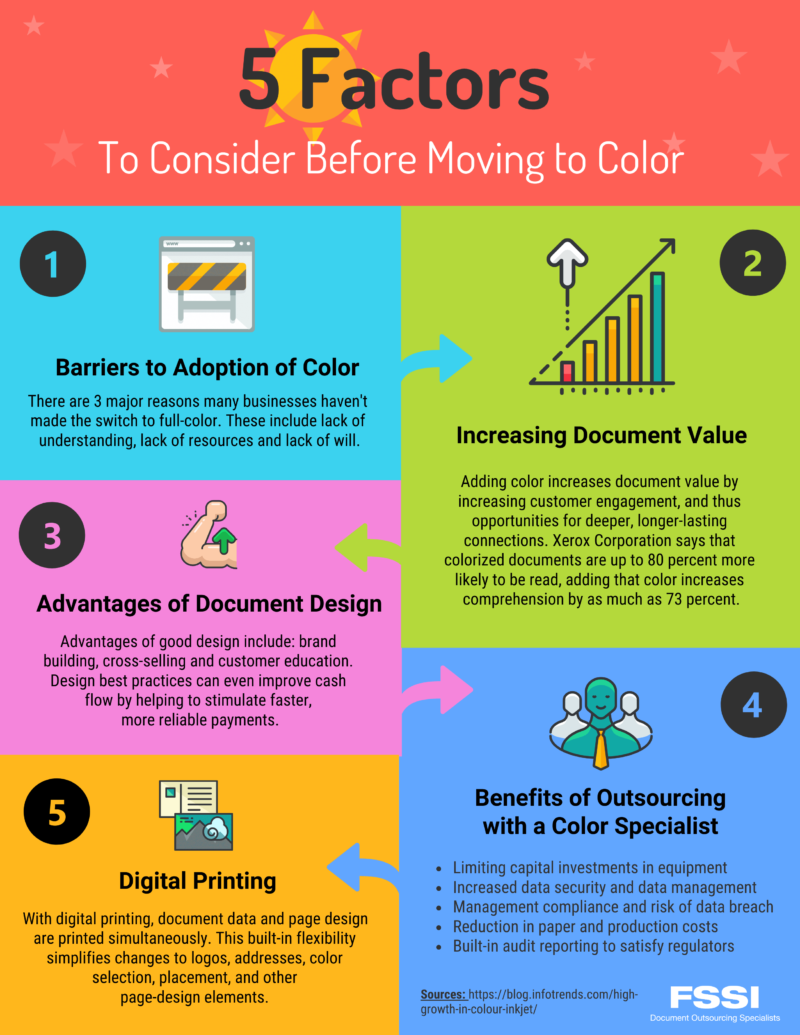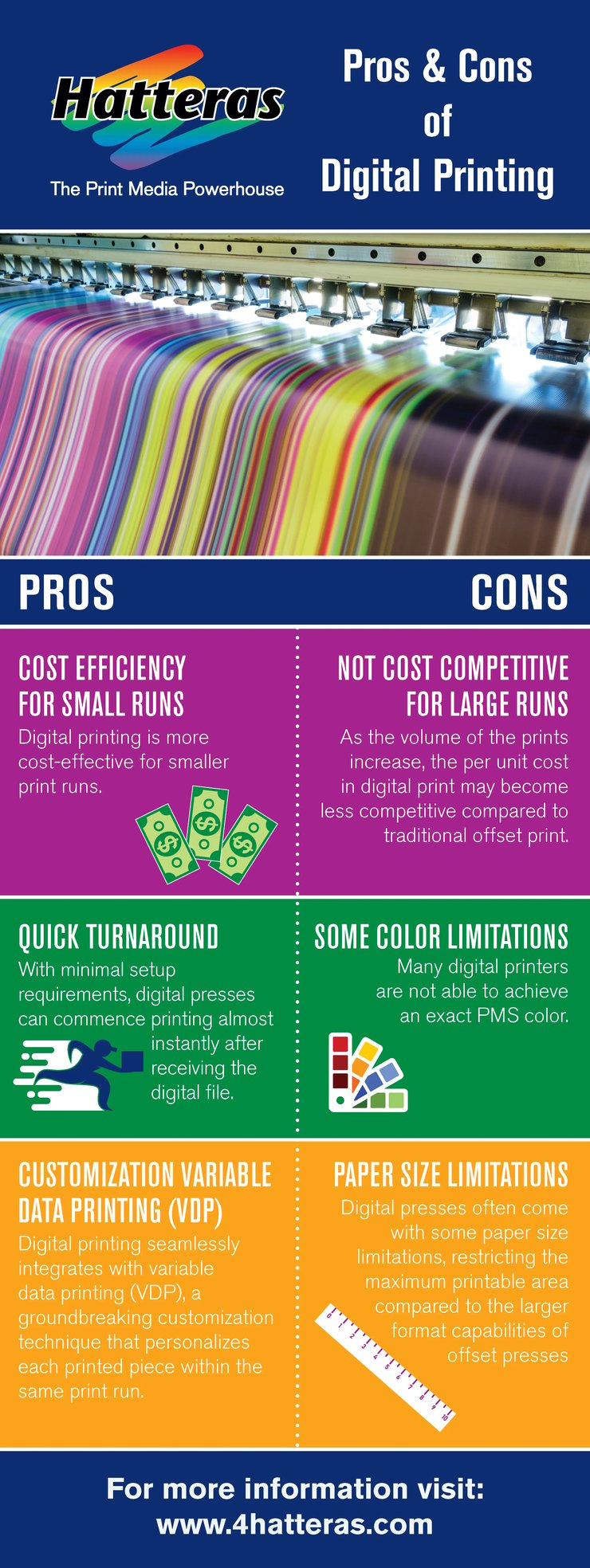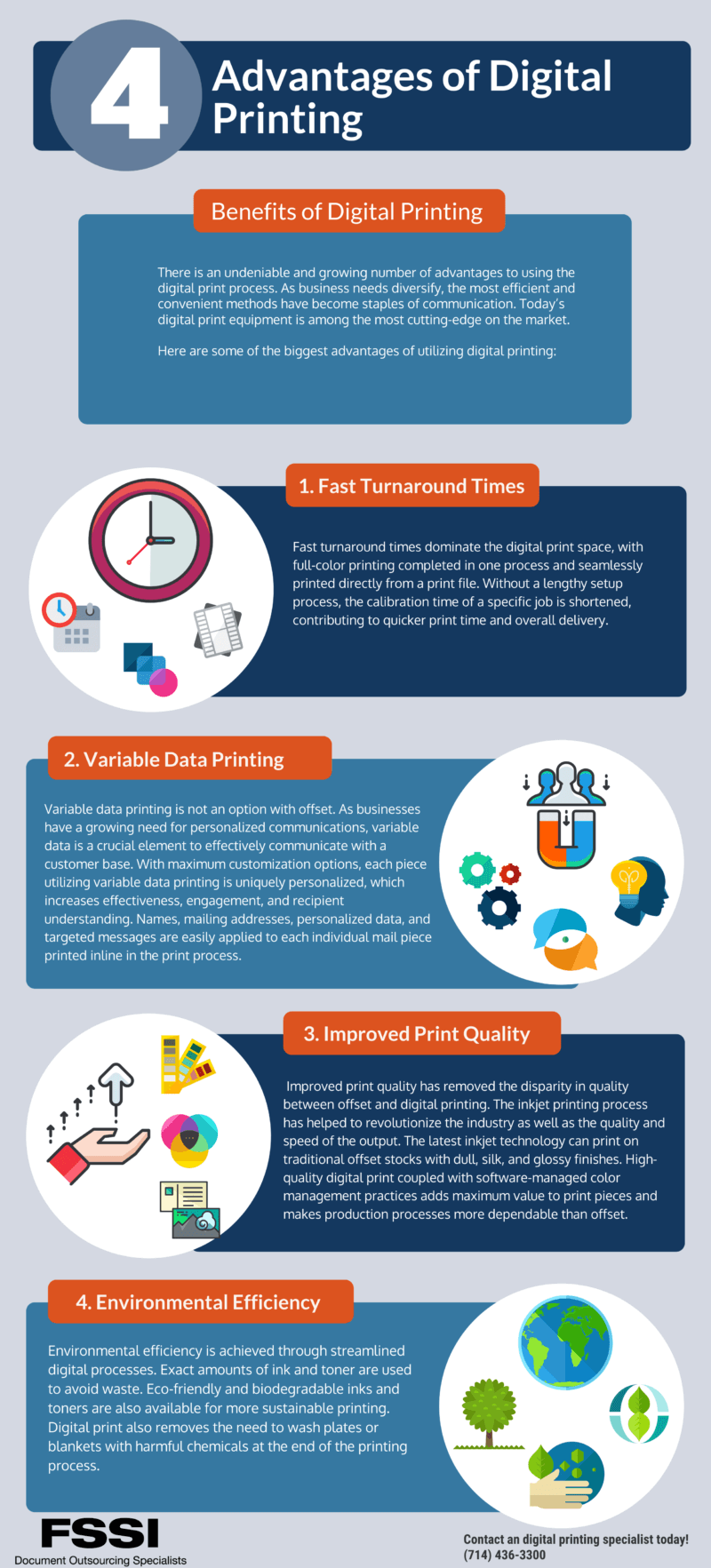Not known Details About Digital Printing
Not known Details About Digital Printing
Blog Article
The Definitive Guide for Digital Printing
Table of ContentsThe Buzz on Digital Printing3 Simple Techniques For Digital PrintingDigital Printing for BeginnersGetting The Digital Printing To WorkA Biased View of Digital PrintingThe Single Strategy To Use For Digital Printing
Variable information printing, such as straight mail with customized codes and addresses, is preferably suited for electronic printing. Digital quick printing only requires four actions of style, review, printing and binding to get everything done. Digital quick printing has an unparalleled advantage: print on need.According to PMMI, digital printing allows brand names and makers to react quickly to consumer needs while improving the supply chain, minimizing warehousing price and waste, and enjoying faster time to market. That all noises excellent, yet how does this technology do all that? The major differentiator of these innovations is that there are no set up fees and no plates with digital printing.
The 9-Second Trick For Digital Printing
According to Wikipedia, the biggest distinction in between electronic printing and traditional methods such as lithography, flexography, gravure, or letterpress - Digital Printing is that there is no need to replace printing plates in electronic printing, whereas in these analog printing techniques home plates are continuously replaced. This results in quicker turn-around time and reduces cost when making use of electronic printing.
Digital printing is extremely flexible, so it's very easy to make adjustments to the bundle design promptly. It all goes back to the plates.
With conventional printing methods, short-run printing is just not possible. Because a terrific layout can make or damage your item, electronic printing consistently produces high-grade, clear and colorful graphics each time.
Digital printing is the procedure of printing digital-based images straight onto a variety of media substratums. There is no need for a printing plate, unlike with offset printing. Digital documents such as PDFs or desktop computer publishing data can be sent out directly to the electronic printing machine to print on paper, image paper, canvas, material, synthetics, cardstock and various other substrates.
A Biased View of Digital Printing
According to PMMI, digital printing allows brand names and suppliers to react quickly to customer demands while enhancing the supply chain, reducing warehousing cost and waste, and appreciating faster time to market. That all audios fantastic, but how does this modern technology do all that? The major differentiator of these modern technologies is that there are no set-up costs and no plates with digital printing.
According to Wikipedia, the greatest distinction between digital printing and typical techniques such as lithography, flexography, gravure, or letterpress is that there is no need to additional info replace printing plates in electronic printing, whereas in these analog printing methods the plates are continuously changed. This causes quicker turn-around time and lowers cost when making use of digital printing.

Fascination About Digital Printing
More supply can suggest even more waste later on. With traditional printing approaches, short-run printing is just not possible. Because a fantastic layout can make or damage your product, electronic printing consistently produces top quality, clear and vibrant graphics each time. Digital printing on adaptable pouches includes the intense, vibrant, and precise graphics This Site that almost bid consumers to reach out and touch them.

According to PMMI, electronic printing permits brands and producers to react quickly to client needs while improving the supply chain, lowering warehousing price and waste, and delighting in faster time to market. That all audios wonderful, however exactly how does this technology do all that? The significant differentiator of these innovations is that there are no set up fees and no plates with digital printing.
The Of Digital Printing
According to Wikipedia, the best distinction between electronic printing and standard methods such as lithography, flexography, gravure, or letterpress is that there is no need to change printing plates in digital printing, whereas in these analog printing methods home plates are repetitively changed. This results in quicker turn-around time and reduces cost when making use of digital printing.
Quick production implies obtaining your item to market faster. It also means it's much easier and faster to make modifications later, when you alter a recipe, add a SKU, or produce seasonal product packaging. Digital printing is very flexible, so it's simple to make changes to the plan design promptly. Everything returns to the plates.

Examine This Report about Digital Printing
Digital printing is the procedure of printing digital-based pictures straight onto a range of media substrates. There is no need for a printing plate, unlike with countered printing. Digital files such as PDFs or desktop computer posting documents can be sent out directly to the digital printing machine to print theoretically, photo paper, canvas, fabric, synthetics, cardstock and various other substrates.
Report this page